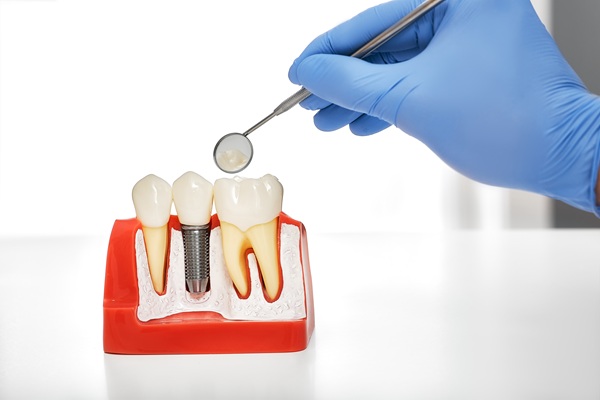 Dental crowns are a type of restoration that can last between 5 and 15 years depending on the material chosen and the quality of care they receive. However, crowns may not provide the long-term durability patients desire if they are not cared for properly through good oral hygiene and protecting them from damage.
Dental crowns are a type of restoration that can last between 5 and 15 years depending on the material chosen and the quality of care they receive. However, crowns may not provide the long-term durability patients desire if they are not cared for properly through good oral hygiene and protecting them from damage.
Tips for getting the most out of your dental crowns
You can protect your dental crowns long-term by brushing your teeth several times each day, making smart dietary choices, avoiding biting down on hard foods and ice, wearing a mouthguard if you struggle with bruxism, and visiting the dentist for regular check-up visits.
Brush your teeth regularly
Brushing, along with good oral hygiene in general, is perhaps the most important aspect of caring for dental crowns. Many patients mistakenly believe that since crowns cover enamel, the risk of complications with the tooth is significantly reduced. However, the tooth can still become damaged through irregular oral care. More notably, the gums and jawbone that support the tooth can become damaged from a lack of brushing, flossing, and mouthwash use.
Be mindful of how dietary choices affect crowns
The food we eat can not only damage teeth enamel, but it can affect gum health as well. It is important to reduce the consumption of sugar and other potentially harmful carbohydrates in addition to practicing good oral hygiene. This can ensure the gums and jawbone are able to remain strong and healthy and prevent the root of the tooth that supports the tooth and the crown from weakening.
Avoid biting down on hard substances
Although the strength of dental crowns depends on the type of material chosen, crowns are relatively strong in general. However, much like enamel, crowns can damage from biting down on hard substances. Among the most notable causes include biting down on hard candy and ice. Other teeth (see below) can also damage the dental crowns prematurely.
Wear a mouth guard to prevent bruxism
A large number of Americans struggle with bruxism, which is also referred to as nighttime teeth grinding. Patients can reduce the risk of damage to their dental crowns from other teeth by wearing a nightguard if they are diagnosed with bruxism. Of course, patients that do not show any signs of bruxism may not need to wear a nightguard, but wearing a mouthguard during certain physical activities may be encouraged.
Visit the dentist for regular check-up visits
Regular check-up visits allow the dentist to detect any early signs of damage to the dental crowns and they can promptly repair the concern before it worsens. In addition, regular check-up visits allow the dentist to check on the patient's gum health, as well.
Schedule a dental crowns consultation with our dental practice
If you are interested in dental crown treatment to improve your oral health, function, and smile, then contact our dental practice today. We can answer any questions you may have and put together a treatment plan that allows you to meet your restorative dentistry goals.
Request an appointment or call Northside Dental Care, PC at 978-206-7077 for an appointment in our Peabody office.
Recent Posts
Dental crowns are often costly and require that a dentist remove a significant amount of the tooth's structure to place them. Read on to learn about dental crown alternatives. Other treatment alternatives are sometimes available that are either less expensive or significantly less invasive. Dental crowns are frequently used to restore severely damaged teeth.The following…
A dental crown can restore a damaged, worn, or weakened tooth. This restoration can bring back your healthy smile and stable dental function. Knowing the benefits of dental caps can motivate you to set an appointment soon. Here are the benefits of a dental crown that you must consider.Losing a tooth can be annoying, especially…
A dental crown is a way for a dentist to repair a broken or damaged tooth. This is a simple solution that many people elect because it is durable and looks like normal teeth. It is also a great option if you have only one tooth that is damaged.The crown is made to match your…


